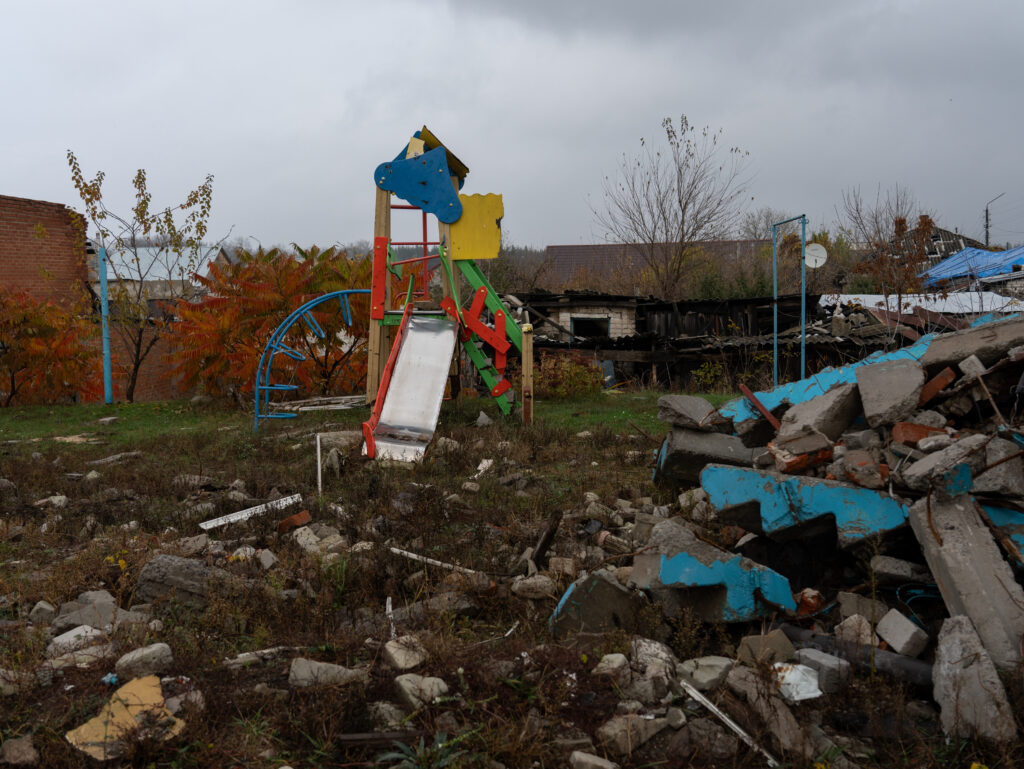The world is currently experiencing unprecedented humanitarian needs. However, many conflicts and disasters quickly lose public attention, resulting in extensive consequences for the record-high number of children and families whose everyday lives are shattered and turned upside down.
Grundfos Foundation is leading the way in a new agreement that allows UNICEF to both respond quickly and to direct resources where the need – and not necessarily where the attention – is greatest. In total, the foundation is donating DKK 5 million over two years, which UNICEF can request with just 24 hours’ notice, for both emergency response and support for ongoing conflicts and disasters.
“Our humanitarian response should always have the greatest impact for children and families, who suffer first and suffer most in conflicts and disasters. We know that timely responses are critical and UNICEF, who is present in the world’s toughest places, knows where the needs are greatest. We should not let bureaucracy and complicated approval processes hinder life-saving emergency aid,” says Kim Skibsted, Director of Grundfos Foundation.

February 7, 2024, Kyiv, Ukraine. A girl is looking at the burned flats, standing on a playground at the yard of the apartment building, which suffered from to the massive shelling of Kyiv this morning. Two kids from this house spent more than five hours in an apartment on the 13th floor engulfed in smoke and flames. Their house came under massive shelling early in the morning. Mom was at work at that time. The children and their aunt were still asleep when a powerful explosion rang out. Photo © UNICEF/UNI519474/Filippov.
DKK 1 million for Ukraine
A timely example are the many civilians in Ukraine who still have massive need for emergency assistance after two years of war. Following Russia’s escalation of the war, UNICEF Denmark received enormous support and funds from individuals, companies, and foundations, all eager to step up and contribute to the humanitarian response. Nearly two years later, the flow of support has almost dried up. The war in Ukraine risks being relegated to the category of forgotten crises.
Therefore, leading up to two-years of war in Ukraine on February 24th, UNICEF, requested a donation of DKK 1 million from the Grundfos Foundation in support of global humanitarian efforts, which can help children and families in Ukraine and the surrounding countries that host many refugees.
Why trust and flexibility are so important for UNICEF
Last year, the number of people in need of humanitarian aid reached a record high of 360 million. At the same time, UNICEF experienced that many donations were tied to specific projects or themes, meaning half of these funds exclusively went to five specific disasters. Trust and flexibility are therefore crucial for UNICEF to manage its efforts and distribute resources more fairly, ultimately increasing the value of donations and assistance.

October 29, 2023, Izium, Kharkivska oblast, Ukraine. A playground, damaged by the shelling. This day local families have received a special delivery – warm clothing sets and blankets from the United Nations Children’s Fund (UNICEF), facilitated with the support of the USAID Bureau of Humanitarian Assistance (BHA), to help them endure the cold. Photo © UNICEF/UNI491246/Filippov.

